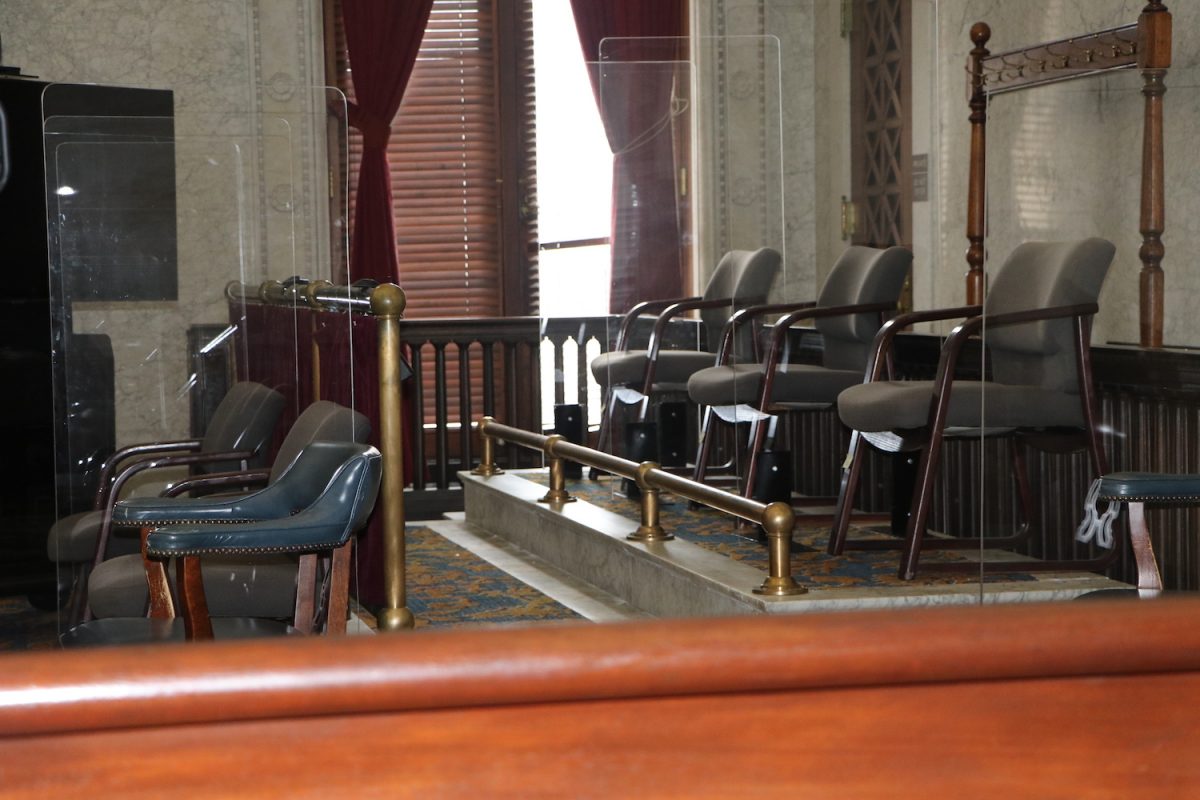
Thank you for reading Baltimore Witness.
Consider making a donation to help us continue our mission.
By
Connor Driscoll [former]
- July 23, 2021
Court
|
Daily Stories
|
Non-Fatal Shooting
|
Suspects
|
Victims
|
Editor’s note: The defendant was acquitted of charges in this case.
The victim in a 2019 Halloween shooting testified against the defendant on the first day of an attempted murder trial on July 22 at the Baltimore City Circuit Court.
During opening statements, the prosecution said they would prove beyond a reasonable doubt, using the 25-year-old victim’s testimony, that Baltimore resident Anthony Ward is guilty of attempted first-degree murder as well as gun-related charges.
According to the victim, the motive was not road rage after an accident but retaliation for a shooting early that month on Oct. 12.
While sitting in traffic on the 3300 block of Wilkens Avenue, the victim testified that she noticed a man staring at her from the sidewalk. A few minutes later she saw a van speeding to catch up to her. At a red light, the van pulled up next to her and a man got out of the back of the vehicle. He approached the driver-side door of the victim’s car and pulled out a gun.
The victim sped away, running two red lights; however, the man shot her vehicle six times. The victim was shot once in her left leg just above her knee. She managed to drive to a parking lot across the street from St. Agnes Hospital. Realizing she was in too much pain to get out of the car, she called 911.
The victim was taken to the University of Maryland Shock Trauma Unit, where she received treatment and was released the same night with crutches.
During the trial on Thursday, two detectives and one patrol officer testified, confirming basic facts about the crime, such as the victim’s injuries and the damage to her vehicle.
A few days after the shooting, the victim retrieved photographs from Instagram to identify Ward as the shooter to police, according to counsel.
The victim said she rode dirt bikes with Ward for five hours on Oct. 12, weeks before she was shot. She said Ward was shot that night as well as her cousin, who died.
The victim said she believes Ward held her responsible for his gunshot wound and that the Oct. 31 shooting was retaliation.
Ward’s defense attorney, Todd Oppenheim, said the state had no evidence besides the eyewitness’s testimony of the victim. Oppenheim argued that the victim’s testimony should be viewed skeptically, citing her initial misidentification of the suspect.
When first asked to make a formal identification through a photo array on Nov. 4, 2019, the victim selected a different man. A homicide detective then reminded her of the Instagram photographs she had previously sent them, and she said she was “ready to tell the truth.”
The victim said the initial misidentification was due to anxiety, unwillingness to go to court, and the possibility of being harmed.
Before a cross-examination but after the jury had left the room, Oppenheim asked the court to allow him to question the victim on inconsistent statements she gave to police regarding a first-degree murder case she was implicated in a year after she was shot.
But, the prosecution argued that allowing such questions would be inappropriate, unethical, and “highly prejudicial.”
Judge Althea M. Handy sided with the prosecution, denying Oppenheim’s request. Judge Handy limited mention of the charges the victim faces to “serious charges” and “a lot of jail time.”
The jury began deliberations on July 23.
